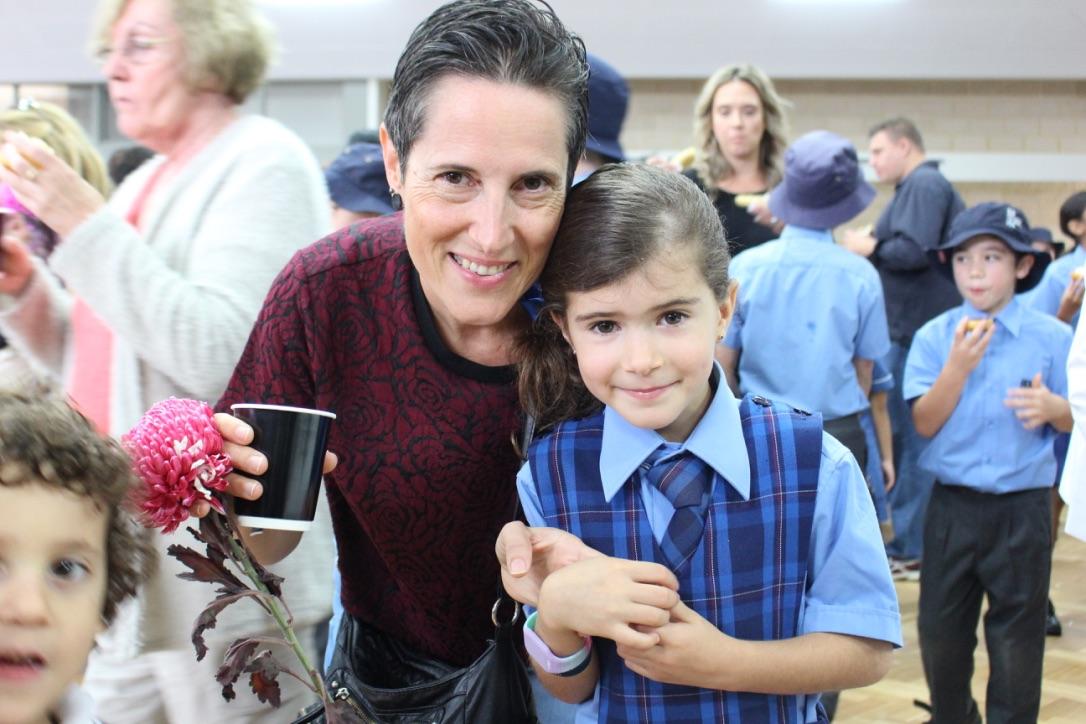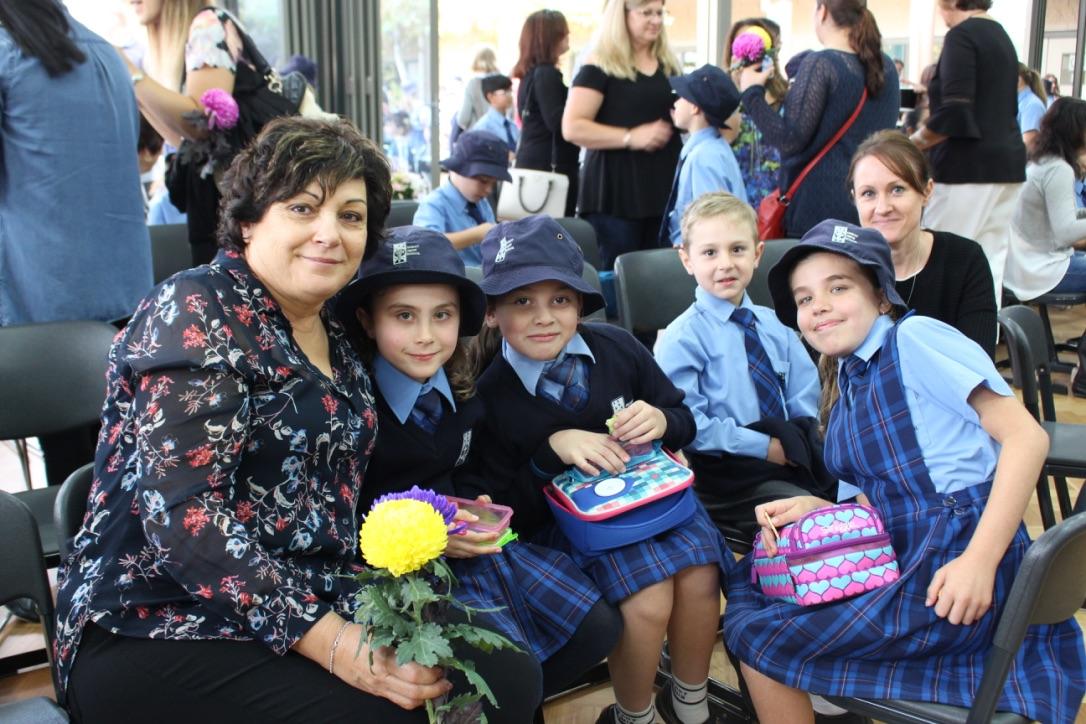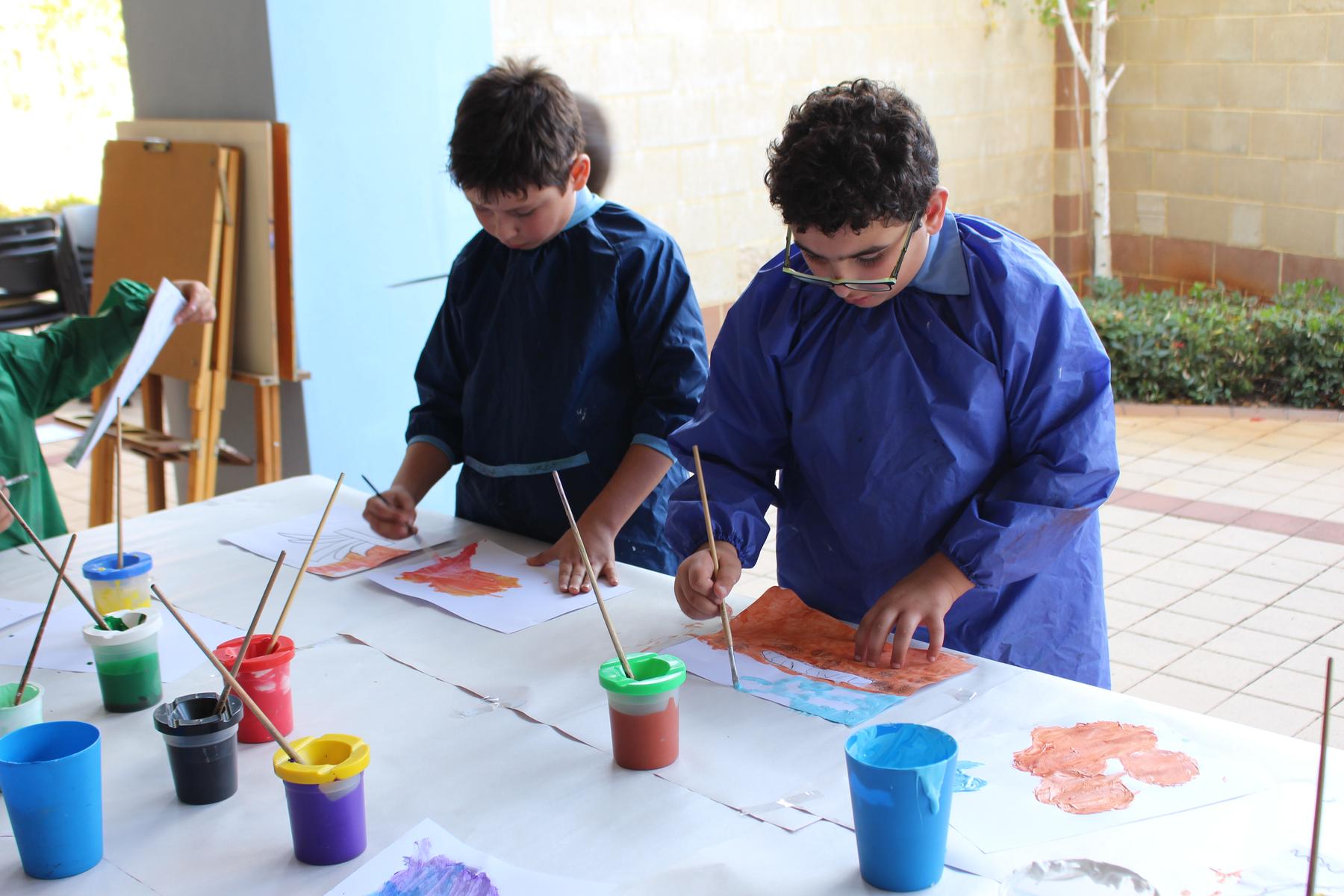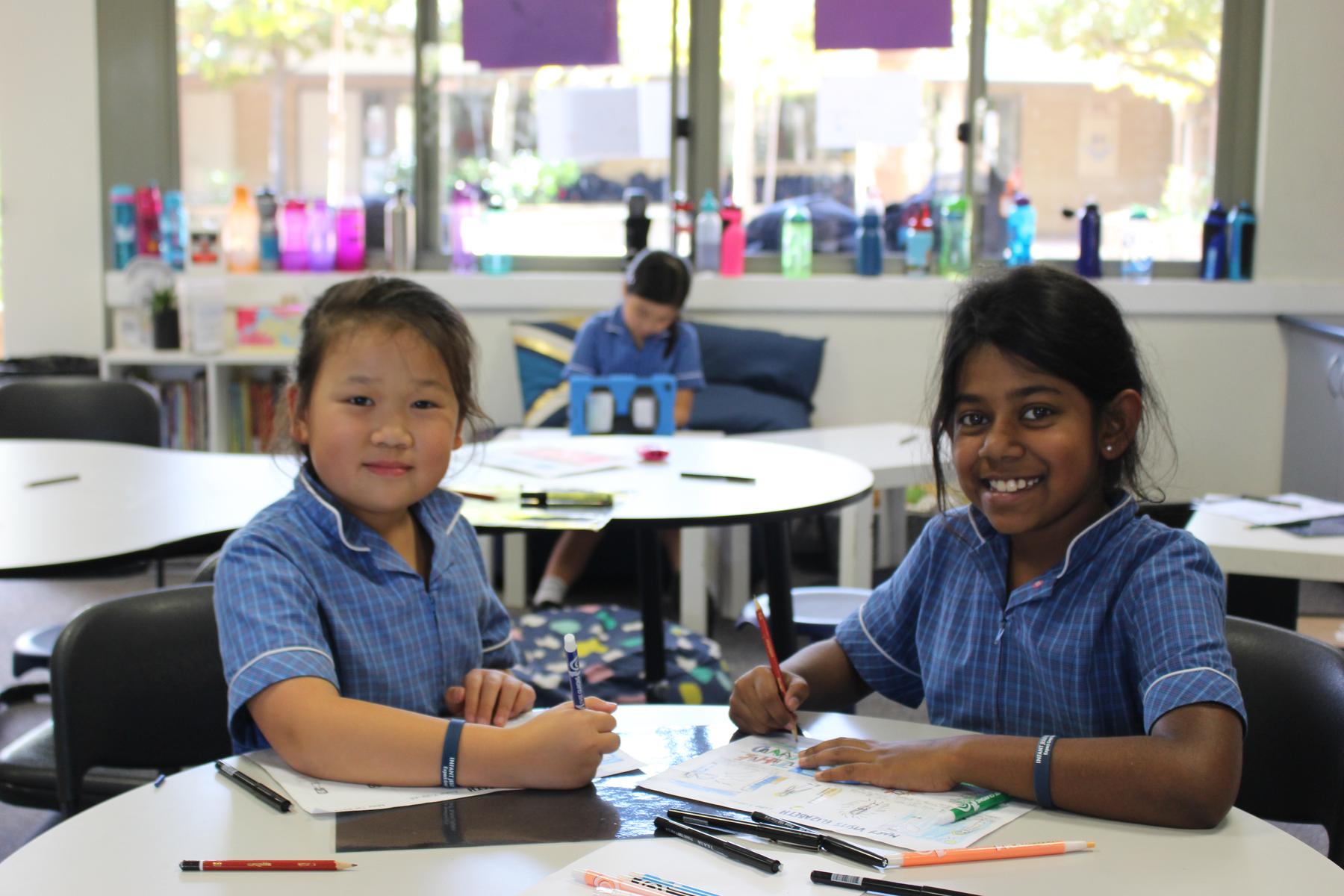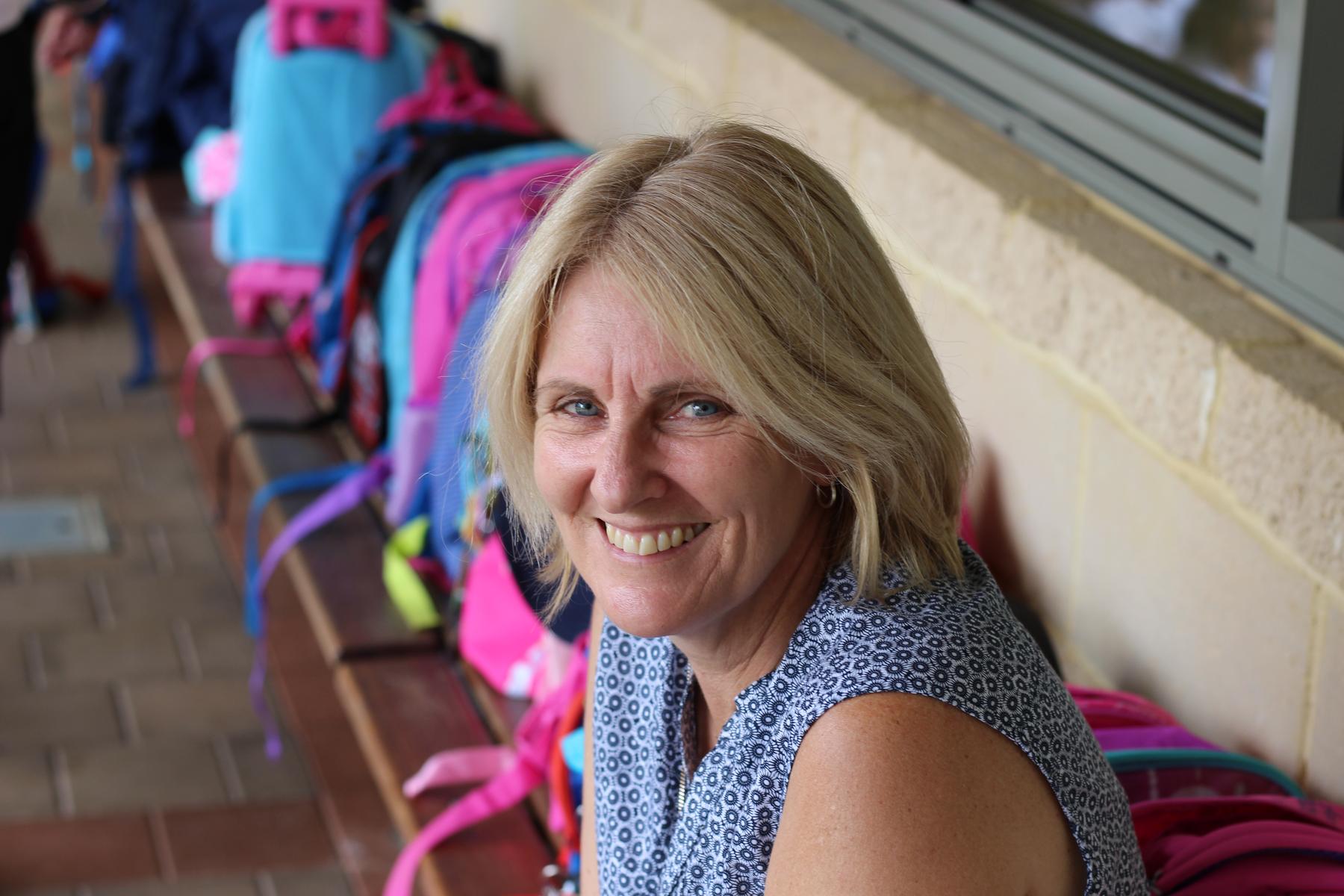Principal's Report
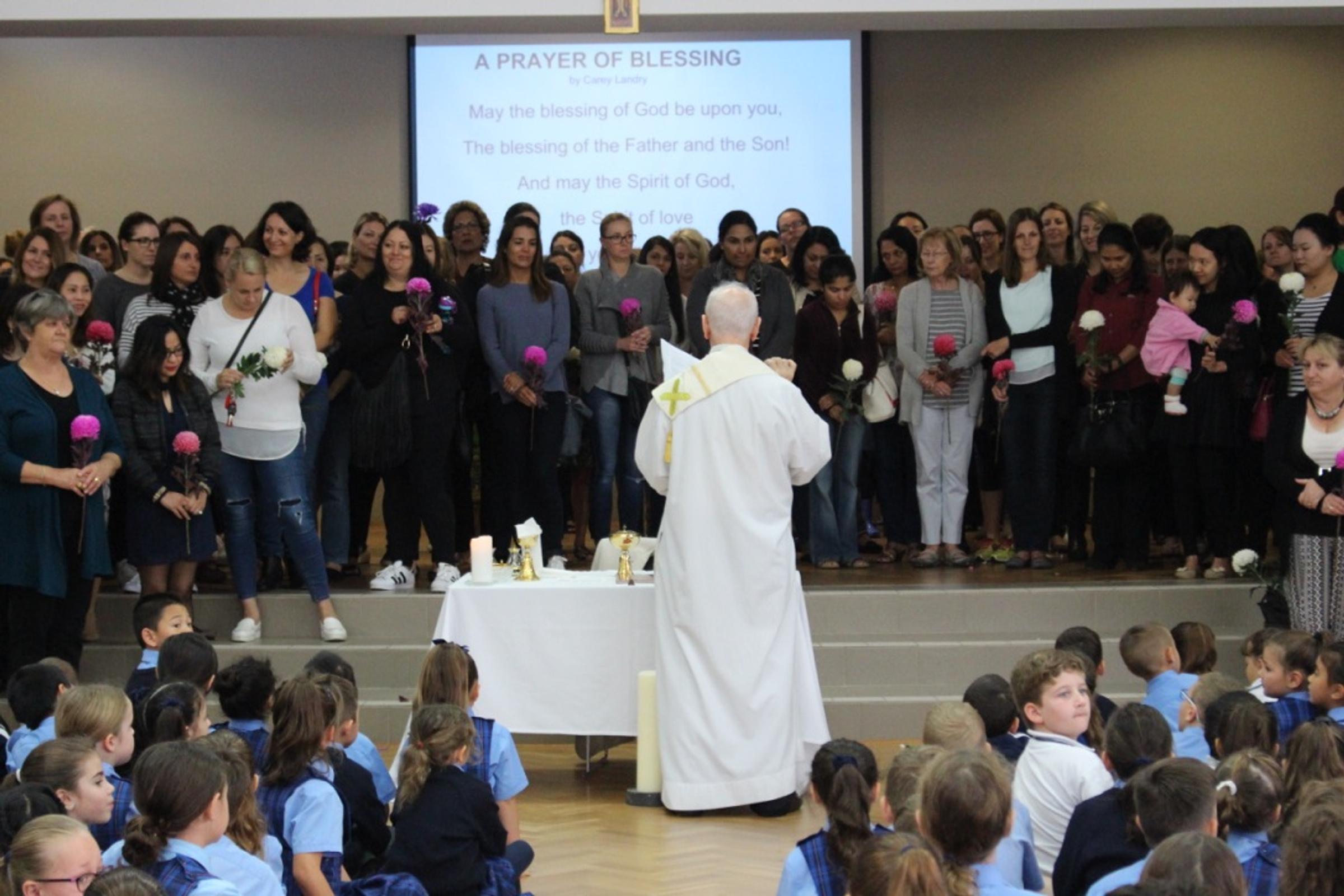
“God loves each one of us, as if there was only one of us to love.”
Dear Parents
Last Sunday is traditionally known as Good Shepherd Sunday. The image of Jesus as a Good Shepherd is a very popular one among Christians. In Sunday’s Gospel, Jesus compares himself to a gate and to a shepherd. Let us look at each of these concepts in turn to see what they tell us about Jesus.
Jesus, the gate: The Kingdom of God is likened to a sheepfold whose gateway is Jesus; He is the Saviour who leads us to the kingdom of God.
A gate gives us access to something. We go through a gate to get to what is on the other side. Those who believe in Jesus are, of course, the sheep. The only legitimate way to be a part of the sheepfold, or to be a part of God's true church and kingdom, is to enter through Jesus, believing in Him.
Jesus, the Shepherd: There are some thought-provoking points here about the relationship between the shepherd and his sheep which we can apply to the relationship between Jesus and ourselves. The voice of the shepherd was a very familiar voice to sheep, a voice that meant not only authority and leadership but also protection and tenderness. The good shepherd image is one that speaks of strong leadership (in a world of false and dangerous ‘messiahs’), compassion and protection (in the midst of cruelty and persecution) and authenticity (instead of betrayal and false accusations). Are you listening for the voice of the Lord? Are you faithfully following our one true shepherd?
“God loves each one of us, as if there was only one of us to love.”
(St Augustine)
Mother's Day
This Sunday is Mother’s Day. On Tuesday morning, Infant Jesus School celebrated the occasion in a special way with a school Mass and a special morning tea for our mums, grandmas and those who are mother-like figures to our children. We were blessed to have over 250 Mothers and carers join with us for this celebration. I would like to thank all those who assisted in making this celebration a special one for our Mums!
Mothers are wonderful human beings. They have many fine qualities that make them so special to us all. Like a sixth sense, a mother is able to detect a child’s needs and wants and with a minimum of fuss, meet that very need or desire. Within the household a mother is able to treat each of her children with tenderness and love as well as being able to ‘lay down the law’ when the need arises. Mothers are capable of always being able to find time to listen, help and be there when they are needed most. Most importantly, mothers always put their children first and foremost.
Mother’s Day presents us with a chance to reflect on the many things that our mothers do for us and continue to do for us each and every day. It would be a tremendously difficult task to count the number of meals they have prepared, the number of items they have washed and ironed and the number of tears they have wiped away. More significantly, to count the number of hugs, kisses and cuddles they have given to each of their children and loved ones would be insurmountable. A mother’s love for her child is never ending.
Thank you to all mothers for the wonderful gifts that you are and we hope you have a wonderful day on Sunday and are spoilt rotten! The following is a reflection in celebration of all our mothers.
When God Created Mothers
When the Good Lord was creating mothers, He was into his sixth day of overtime when an angel appeared and said, “You’re doing a lot of fiddling around on this one.”
And the Lord said, “Have you read the specifications on this order? She has to be completely washable, but not plastic...have 180 moveable parts – all replaceable...run on black coffee and leftovers...have a lap that disappears when she stands up...a kiss than can cure anything from a broken leg to a disappointing love affair... and six pairs of hands.
The angel shook her head slowly and said, “Six pairs of hands? No way!”
It’s not the hands that are causing me problems,” said the Lord.
“It’s the three pairs of eyes that mothers have to have.”
“That’s on the standard model?” asked the angel.
The Lord nodded.
“One pair that sees through closed doors when she asks, “What are you kids doing in there?” - When she already knows. Another pair in the back of her head that sees what she shouldn’t, but what she has to know and of course, the ones in front that can look at a child when he gets himself into trouble and say, “I understand and I love you”, without so much as uttering a word.”
“Lord,” said the angel, touching his sleeve gently, “go to bed, tomorrow is another....”
“I can’t,” said the Lord. “I am so close now. Already I have one who heals herself when she is sick, can feed a family of six on half a kilo of mince, and can get a nine year old to stand under a shower.”
The angel circled the model of a mother slowly. “It’s too soft,” she sighed.
But tough!” said the Lord excitedly. “You cannot imagine what this mother can do or endure.”
“Can it think?”
“Not only think, but it can reason and compromise,” said the Creator.
Finally, the angel bent over and ran her finger across the cheek. “There’s a leak,” she pronounced.
“It’s not a leak,” said the Lord. “It’s a tear.”
What’s it for?
It’s for joy, sadness, disappointment, pain, loneliness and pride.”
“You’re a genius,” said the angel.
The Lord looked sombre. “I didn’t put it there.”
Prayer
Loving God,
We thank you for the love of the mothers you have given us, whose love is so precious that it can never be measured, whose patience seems to have no end.
May we see your loving hand behind them and guiding them. We pray for those mothers who fear they will run out of love or time or patience.
We ask you to bless them with your own special love. We ask this in the name of Jesus, our brother.
Amen.
From My Readings
Being Organised isn’t just about Being Tidy!
If your child has organisation issues, opening their school bag can be a frightening experience. Crumpled assignments and tests, school announcements from two months ago, missing house key—it’s a mess! Many people think of organisation skills as the ability to keep things in order. But people also use those skills to keep their thoughts in order so they can retrieve information and use it effectively.
Children who have weak organisation skills struggle with handling information in an effective and logical way. They often have difficulty setting priorities, making plans, sticking to a task and getting things done. These skills become increasingly important as your child moves through different grade levels. Here are four ways children use organisational skills to learn.
Organisation and Following Directions
Following through on directions requires children to do two things: focus on what needs to be done and come up with a game plan to do it. Both of these require mental organisation and planning. Children with strong organisational skills can often follow directions without even thinking about it. They can plan steps to get something done. If your child has weak organisation skills, they may not be able to see the progression of steps contained in directions or even know where to start.
Organisation and Learning to Read
Children use organisation skills in subtle ways when first learning to read. Phonics (connecting sounds to letters) requires children to have what could be imagined as a mental filing system where they store the uppercase and lowercase version of a letter together with the sound (or sounds) that letter makes. Whenever children see a letter, they can pull out the sound that goes with it. The filing system becomes more complicated when children start recognizing sight words (common words children memorize by how they look) and need to match them to images of what they stand for.
If your child struggles with organisation, he/she may have trouble retrieving the necessary information to connect letters to sounds and groups of letters to the things they stand for.
Organisation and Literacy Learning which is the combination of reading, writing and grammar skills, requires a number of organisation strategies. For children to read books and write, they have to keep track of many things at once: characters and their relationships, plot, sequences of events, supporting details and the main idea. Non-fiction requires keeping track of subject-specific vocabulary. If your child struggles with organisation he/she may not be able to gather all that information and organise it and if he/she has to stop and look up words while reading, they may not be able to pick up where they left off.
Organisation and Learning Math
Children have to use organisation skills to learn maths because it’s a very organised subject. There are rules and procedures to follow all along the way. Maths also involves organising information based on relationships, such as sorting things into groups by size, colour or shape. As maths gets more abstract, many children with organisation issues have trouble keeping up because they can’t create their own categories for sorting the information. Organisation skills are also needed to solve word problems using clue words (such as fewer than to mean subtraction) to help sort through information.
If your child has organisation issues, being able to store and retrieve rules and facts can be challenging. The good news: there are ways to help your child’s lack of organisation that might make learning harder for them, but there are also strategies that can help. You could try doing a backpack makeover and using checklists and other tools to help them get organised. You can also talk to your child’s teacher about accommodations that could help your child stay organised and improve planning skills.
Key Takeaways
- Organisation skills allow kids to come up with a plan and follow through to get work done.
- Tools like checklists and planners can help kids get more organised.
- Weak organisation skills can make learning harder, but not impossible
– By Michael Grose
Best Wishes
We take this opportunity to wish Mrs Cathy Duschka (Pre-Primary Education Assistant) all the very best for her well deserved long service leave. See you in a few weeks Cathy!
NAPLAN Testing Aligns with CEWA Focus on Data
As students across the state prepare to participate in the annual NAPLAN (National Assessment Program Literacy and Numeracy) testing this week, Catholic Education Western Australia (CEWA) has highlighted the benefits of using data to inform the best possible learning opportunities and outcomes for students.
Dr Tim McDonald, CEWA Executive Director, said NAPLAN testing was one of many tools Catholic schools used to chart the development of students.
“NAPLAN aligns with an increasing focus by CEWA on data analysis to deliver improvements in teaching and learning practices. NAPLAN testing is not intended to fully measure all aspects of students’ learning, but it does provide students across the country with an opportunity to demonstrate their learning in numeracy and literacy on the same day, in the same test,” he said.
“CEWA assists schools with analysis of NAPLAN results to ensure each school is able to make the most of this data, including trends in results they may want to focus on.”
“While NAPLAN provides data on literacy and numeracy, CEWA is implementing data analysis to deliver benefits in a variety of ways in our system. This includes a new digital learning platform, that enables educators and students to benefit from analytics on learning content in their classrooms, as well as work by our Teaching and Learning Team to analyse a variety of data on schools across the system provided by school staff,” Dr McDonald said.
Catholic schools have shown sustained improvement in student outcomes in recent years, which Dr McDonald attributed both to this use of data in decision-making, as well as schools promoting cultures where each staff member is responsible for the success of each individual student.
“We have terrific staff working in schools throughout WA who are committed to delivering a Catholic education that supports students in their spiritual, intellectual, social and emotional, physical and creative development,” he said.
“CEWA schools aim to prepare students to thrive in our rapidly changing world. Preparing students to be confidently literate and numerate is an important part of this development, and NAPLAN testing is one way in which Catholic schools meet this need,”
* NOTE – Comments are provided by Dr Tim McDonald in his capacity as CEWA Executive Director. Dr McDonald is also a board member of the Australian Curriculum, Assessment and Reporting Authority (ACARA).
Music Assembly
The Choir have been working diligently this term in readiness for the Festival and will be performing at the next scheduled Assembly on Thursday 18 May when they will also receive their badges. All parents welcome.
STEAM Parent Nights
This term, our school will be holding two STEAM (Science, Technology, Engineering, Art, Math) nights. The purpose of these nights will be to share with parents what STEAM is, how it fits into the curriculum and how our school is implementing it across the year levels.
There will also be an opportunity for parents to participate in mini STEAM activities based around what students have been learning in class.
The first STEAM Parent Night will be held on Thursday 18 May is for parents of children in Years 4, 5 and 6.
The second STEAM Parent Night will be held on Thursday 25 May for parents of students in Years 1-3.
As places are limited, please register your interest as early as possible by following the link.
https://www.surveymonkey.com/r/C8GGKC2
Infant Jesus Family
Our thoughts and prayers are with the following families as they farewell beloved Grandparents :
- Letizia family (Kieran 4W) in the sad passing of their Nonno.
- Newman family (Kaila 3W) as they say goodbye to their loved Great Grandfather.
- Blanchard family (Kai 3W and Dru PPB) as they farewell their beloved Grandfather.
Eternal rest grant unto them O Lord and may perpetual light shine upon them. May they rest in Peace. Amen.
Did you know?
- There are about one billion cattle in the world of which 200 million are in India.
- A sneeze travels out your mouth at over 100 kmph
- 71% of office workers stopped on the street for a survey agreed to give up their computer passwords in exchange for a chocolate bar.
Thought for the Week
Do not go where the path may lead,
go instead where there is no path and leave a trail
Ralph Waldo emerson
God Bless,
Paul Hille
Principal
#ExpectGreatThings


